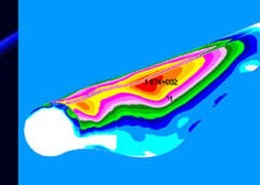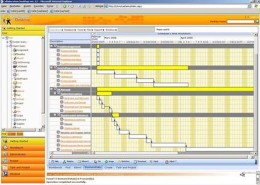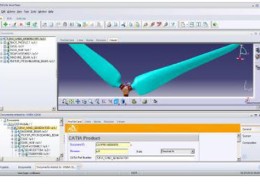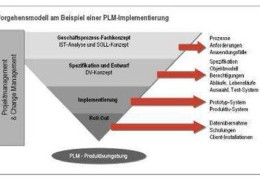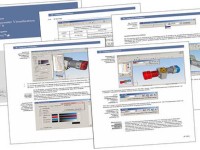Development of templates used for in-house testing in the context of JT- translator benchmarks
Customer: IT-Dienstleister / Automotive
The realisation of product lifecycle management implies all product data to be provided and accessible continuously. One target is to transfer 3D product data to all areas involved in the development process. Due to heterogeneous system environments in many places system neutral and lightweight data export formats are being applied. JT -format is the worldwide most frequently used format of this kind. The publishing of the JT- specification as a publicly available specification – ISO/NP PAS 14306 – has paved the way for JT to become accepted as standard format for 3D-workflows. The project group ‘JT workflow forum’ analyses use cases and defines requirements for process and format purposes. These requirements have been inspected in a benchmark-test.
All brand names, product names and abbreviations are the property of their respective companies.
Project Definition
The second benchmark series covered testing within the companies of ‘JT workflow forums’ members. Test templates were required to consolidate, evaluate and document test results in an objective manner. These templates were supposed to be developed by RLE BS&C.
Realisation
Uniform test criteria and test cases have been defined initially to achieve a comparability of the tests. The outcome was an extensive list of requirements which consists all test criteria and records the test execution. To ensure a comparable documentation a template with restricted tester access has been developed. Evaluation and result calculation took place automatically in the background. The templates also serve as an important basis for prospective benchmark tests of the ‘JT workflow forums’.
RLE‘s Competence
The successful project participation is based on long-time cooperation of RLE-employees within the ‘JT workflow forum’ team. Further on the experience in the fields of CAD-methodology and –application, visualisation and PLM business process consulting were success factors.
Value for the customer
The standardised templates enabled a local execution of ‘in-house’ testing. By means of the templates the test results of different companies could easily be combined and evaluated. Due to this approach the benchmark results could be validated in an objective and efficient manner.



